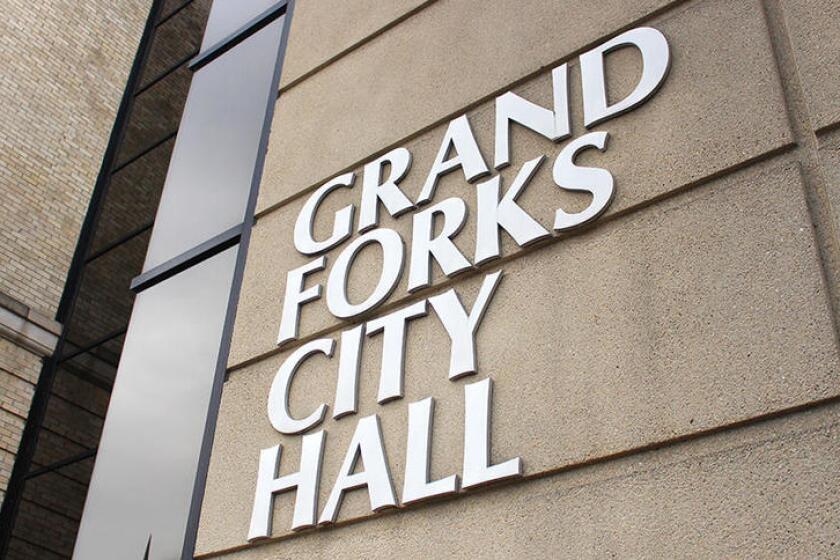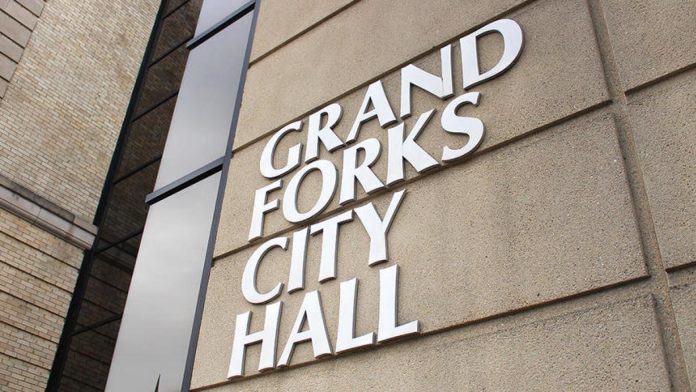The council decided 75% of an organization’s board or staff must reside in Grand Forks or Polk counties to be eligible, with a few exceptions.


By Hannah Shirley
Today at 7:11 PM
GRAND FORKS – The Grand Forks City Council agreed Monday night to adjust the city’s charitable gaming ordinance to limit which organizations can have a gaming site, with some exceptions.
Under the new ordinance, 75% of an organization’s board or staff must reside in Grand Forks or Polk counties in order to be eligible for charitable gaming sites in the city. The current cap of 10 sites per organization remains in place.
There will be two exceptions to the 75% rule, including:
- One: an exemption will be made if the eligible organization is the owner of one property where charitable gaming is authorized. If the organization owns multiple properties, it still must comply with the 75% rule.
- Two: An exemption will be made for single-event sites, such as raffles.
The ordinance passed 6-1, with City Council member Tricia Berg dissenting.
Prior to the vote, the council heard from Don Santer, CEO of North Dakota Association for the Disabled. Santer told the council that NDAD had been founded in Grand Forks, and all of the proceeds from charitable gaming at Southgate Casino, Bar and Grill on South Washington Street – owned by NDAD – stay in the Grand Forks community. However, because NDAD is now a statewide organization, without exemptions to the 75% rule, it no longer would have been eligible to operate its charitable gaming sites in Grand Forks.
“While I understand the intention (of the 75% rule), the reality is this would force NDAD to shut down gaming at Southgate as a statewide organization,” Santer told the council. The impact of losing the Grand Forks charitable gaming site would be “dozens of jobs lost, $2 million in wages gone, and, most importantly, it would strip away essential services from the people who need them most.”
The agreed-upon exemption will allow organizations like Southgate to continue to operate charitable gaming sites at their own properties without allowing non-local organizations to buy multiple bars in the city and “usurp the rule,” Mayor Brandon Bochenski said.
The updated ordinance aims to make it easier for local organizations to participate in charitable gaming. According to a council report, there are charitable organizations in the community that want to participate but are not able to because there are not enough authorized sites available.
However, Berg worried that adding restrictions on who can participate in charitable gaming would be “shooting ourselves in the foot.”
“If there’s a future nonprofit that wants to come to the state, to North Dakota, and operate throughout the state of North Dakota, I think we’re really restricting ourselves from future opportunity to have a headquarters here in Grand Forks, and I think we greatly benefit when headquarters are located here,” Berg said. “So I’m going to be voting no on this.”
In other news, the council:
- Heard updates on negotiations with Agristo, which are going “swimmingly,” according to Bochenski. The development agreement with the Belgian potato processor for its proposed Grand Forks plant is still being finalized between city and Agristo attorneys.
- Accepted a new city ordinance that allows city police to serve no-trespass orders to people trespassing on city property. The ordinance contains a number of considerations to ensure the city isn’t violating anyone’s First Amendment or due process rights.
- Recommended approval of a new city ordinance to update the number of parking spaces per unit that multi-family housing developments are required to provide. Under the new ordinance, buildings would be required to offer 1.25 off-street parking spaces per efficiency unit, 1.5 spaces per one-bedroom unit, two spaces per two-bedroom unit and 2.5 spaces per three-bedroom (or larger) unit. The change will go to public hearing on Sept. 15. The change would put Grand Forks more in line with other North Dakota cities, according to city planner Ryan Brooks.
- Heard updates from Bochenski. He congratulated now-retired Sgt. Kevin Kallinen on 45 years with the Grand Forks Police Department. According to Bochenski, “he had an uncanny ability … to find stolen cars.” He estimated some two thirds of the cars stolen in Grand Forks in the past 45 years were located by Kallinen. Bochenski also reported that he expects to have more answers regarding e xpanded air service at Grand Forks International Airport sometime this fall or winter.
- Heard four public hearings and recommended all for passage. The hearings included updates to the city zoning map to change one existing business district into a residential district, one existing light industrial district to a general commercial district and one Planned Use Development commercial district to a PUD light commercial district. The council also recommended changing city code to allow hotels to serve alcohol at off-site events.
- Adopted a resolution authorizing the issuance and appropriating the special assessments for the $1.316 million of Refunding Improvement Bonds to finance the construction of a storm sewer along 27th Avenue North and North 32nd Street.
- Approved a loan from the state Department of Environmental Quality of more than $1.521 million through the Clean Water State Revolving Fund for a Highway 81 watermain project.
- Voted to renew a 10-year conditional use permit for Residual Material Inc. Recycling Center.
- Replatted a number of parcels to create five new lots at 2920 Fifth Ave. N.
